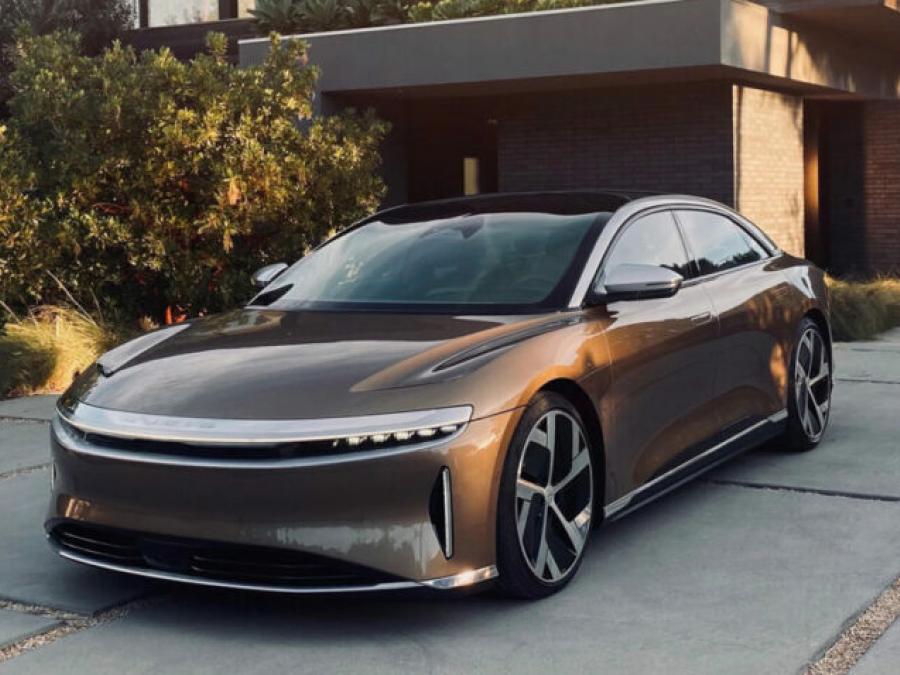
American electric vehicle manufacturer Lucid Motor recently announced that it was cutting its production target for 2022 again, after it had previously been reduced from 20,000 to 14,000 units. Now the EV maker has said that it only expects to manufacture between 6,000 and 7,000 Airs this year, prompting a strong ironic reaction from Elon Musk, a longtime critic of Lucid.
But while in the past Musk’s words towards Lucid were harsh and direct, this time the Tesla CEO chose to make a joke about it when replying to a tweet about the production cut. He said had more kids in Q2 than Lucid was able to produce cars, jokingly reminding everyone that he is a father of nine, most recently announcing that he is the father of previously unknown twins he had with a Neuralink exec from Canada.
Replying to a tweet about the Lucid production reduction forecast by known Tesla bull Gary Black, Elon Musk said he had more kids in Q2 than they (Lucid) made cars!
Lucid cited “extraordinary supply chain and logistic challenges” as the cause for the production plan change and not anything that the startup is in control of. The company delivered just 360 vehicles in the first quarter of 2022, 679 in Q2 and it reportedly assembled a total of 1,405 Airs in the first 6 months. Q2 revenue was also quite low, under $100 million, below initial industry analyst projections.
The manufacturer also says it has 37,000 Air reservations and it’s also working on its first ever SUV– the Gravity, which should provide an even better profit margin than the sedan. The Gravity may be shown by the end of this year, and if everything goes according to previously announced plans, it should go into production by next year, making Lucid vehicles appear to a much wider spectrum of buyers.

It was previously reported that the next-generation Suzuki Swift hatchback will likely be unveiled in July 2022. However the global parts shortages and supply chain issues pushed the development of new Swift back. Now however we have the first spy images of a camouflaged next generation Swift hatchback undergoing testing hinting its its global debut in forthcoming months.
The heavily camouflaged test mule shows us a good hint of the design its hiding underneath. The bonnet for example, gets smoother while the restyled LED headlights appear to be sleeker than the current generation model. The sides show us swoopy roofline and the biggest change is the positioning of rear door handles that are now placed conventionally on the door, as opposed to the C-pillars on the current model.
The rear gets more trapezoidal rear windshield while a set of revamped taillights is also expected. Other notable exterior highlights could include larger alloy wheels with a dual-tone finish, blacked-out pillars, faux air vents close to wheel arches, a large roof-mounted spoiler and reflector elements on the lower rear bumper.
The new-gen Swift will be underpinned by an advanced version of Suzuki’s lightweight Heartect platform. As far as the interior is concerned, the new Swift will likely get a a revised dashboard layout as well as better and upgraded equipment with more features onboard. Details related to poweertrain are scarce at the moment, however its likely to get a range of options such as 1.2L naturally aspirated and 1.4L turbocharged with mild-hybrid setup. An HEV version is also rumored to be in the works, which could come from Suzuki’s collaboration with Toyota.

According to a report, the World Economic Forum (FEC) wants to end “wasteful” private vehicle ownership and instead replace it with “communal sharing” of cars in an effort to reduce global demands for fossil fuels and precious metals.
A paper published by WEF argues that private vehicles are not good for the earth and that most vehicles are barely used.
The proposed universal model would take vehicle users “from owning to using” vehicles, thus protecting the planet. In their paper, WEF uses the statistic that shows the average car use in England is only 4%, claiming that it would be easy to share vehicles with other people.
According to WEF, it is time to sell cars that just sit there not getting used and instead walk or share vehicles because “car sharing platforms such as Getaround and BlueSG have already seized that opportunity to offer vehicles where you pay per hour used.”
WEF said that in order to save the planet, the end of private ownership is required and applies to everything, including cars, private homes and even “city-wide design principles.” WEF added:
“A design process that focuses on fulfilling the underlying need instead of designing for product purchasing is fundamental to this transition.”
WEF stated:
“This is the mindset needed to redesign cities to reduce private vehicles and other usages.”
It seems that WEF is not the only organization that wants people to give up personal car ownership. The International Energy Agency (IEA) told global governments they need to cut the amount of oil supply to domestic consumers and “nudge” people out of their private cars to lower consumption.
IEA allegedly has a plan to reduce the consumption of gas by reducing speed limits, having more electric cars, constructing more cyclist lanes, implement cheap public transport, use long-distance trains instead of airplanes, and have people work from home at least three days per week.
IEA stated that these “changes” in the behavior of consumers are necessary for the benefit and survival of the planet.
One example of these “changes” is Ireland’s 10-year “Climate Action Plan 2019” (CAP), which forces vehicles off the road and packs people into “higher density” cities. The CAP is “revolutionizing people’s lives” in order to stop the coming “climate apocalypse.”
In order to avert the “climate apocalypse”, the government plans to force people “out of private cars because they are the biggest offenders for emissions” with proposals that include banning fossil fuel vehicles from towns and cities nationwide to intentionally cripple ordinary motorists.
According to reports, a number of European nations and U.S. states have already passed legislation that will ban the sale of non-electric cars as soon as 2030. Washington, New York and California have already passed such measures.
Forbes reported that some cities in Europe are starting to introduce charges for using personal vehicles, with extra fees on the top for more polluting vehicles, such as London’s Ultra Low Emission Zone or Bristol’s Clean Air Zone.
The advent of autonomous taxies, which are already in commercial use in China, could also make on-demand ride hailing even easier than the likes of Uber and Lyft. Electric vehicles also throw a further complication into the mix of car buying and owning.















